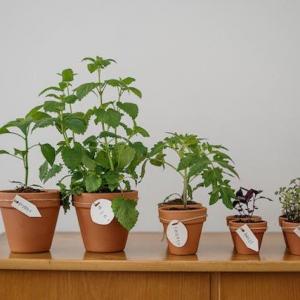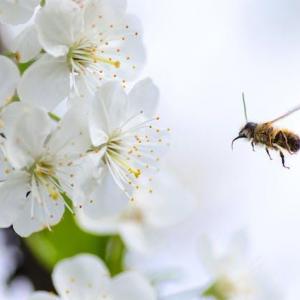
Connection with Nature:
The connection with nature that gardening offers goes beyond just being outdoors. It allows individuals to engage with their natural surroundings on a deeper level. Spending time in a garden provides an opportunity to observe the beauty of plants, flowers, and wildlife. This connection with nature has been shown to have numerous mental health benefits. Research has found that exposure to nature can reduce stress, lower blood pressure, and improve mood. The sights, sounds, and smells of nature can create a calming effect on the mind and provide a sense of tranquility and peace. Furthermore, gardening allows individuals to witness the cycles of life firsthand. From planting seeds and nurturing them to seeing them grow and blossom, gardening offers a sense of awe and wonder. This connection with the natural world can instill a sense of humility and appreciation for the environment, which can contribute to overall well-being.Mindfulness and Stress Reduction:
Gardening provides an opportunity to practice mindfulness, a state of focused attention on the present moment. When engaged in gardening activities, individuals are encouraged to be fully present, observing the plants, feeling the soil, and paying attention to the sensations of watering or pruning. This act of mindfulness helps redirect attention away from worries and stressors, promoting relaxation and reducing anxiety. In our fast-paced, technology-driven world, gardening serves as a gentle reminder to slow down and appreciate the simple pleasures in life. The act of tending to plants and being in tune with their needs requires patience, focus, and a mindful approach. As individuals immerse themselves in the present moment, they can experience a sense of calm and tranquility. Additionally, gardening provides a sense of purpose and accomplishment. Witnessing the growth and progress of plants as a result of one's efforts can boost self-esteem and provide a sense of achievement. This can contribute to an overall improvement in mood and well-being.Physical Activity and Exercise:
Gardening is a physical activity that provides exercise benefits. Activities such as digging, planting, weeding, and watering involve movements that engage muscles and increase heart rate. This moderate form of exercise can improve physical fitness, flexibility, and strength.Engaging in regular physical activity in the garden has been associated with reduced risks of cardiovascular disease, obesity, and other chronic health conditions. The physical exertion involved in gardening helps to burn calories, maintain healthy weight, and increase overall fitness levels.
Furthermore, the physicality of gardening can be beneficial for individuals of all ages. It provides an opportunity for older adults to engage in low-impact exercise that promotes mobility and joint flexibility. For children, gardening can be a fun and active way to learn about nature and develop motor skills.
Exercise also releases endorphins, which are natural mood-lifters. These feel-good chemicals can help reduce symptoms of depression and anxiety. Gardening not only offers a chance to engage in physical activity but also provides the added benefit of being outdoors and connecting with nature, enhancing the overall mood-boosting effects.
Sense of Community and Social Connection:
Gardening can foster a sense of community and social connection, especially when individuals participate in community gardens or gardening clubs. These spaces provide opportunities to connect with like-minded individuals, share knowledge and experiences, and build supportive relationships.Working alongside others in a garden can create a sense of belonging and camaraderie. It offers a chance to exchange gardening tips, share resources, and collaborate on projects. In community gardens, individuals often work together to maintain and improve shared spaces, fostering a sense of collective responsibility and pride.
Participating in community gardening initiatives not only provides social connections but also contributes to the well-being of the broader community. These initiatives can improve neighborhood aesthetics, promote sustainable practices, and provide access to fresh produce in areas where it may be limited.
Furthermore, engaging in gardening activities with family members or friends can strengthen bonds and create shared experiences. Gardening together offers a chance to connect on a deeper level, away from screens and distractions. It provides an opportunity for meaningful conversations, collaboration, and the creation of lasting memories.
Therapeutic Benefits of Horticulture:
Horticultural therapy is a specialized form of therapy that utilizes gardening and plant-related activities to improve mental health and well-being. It is conducted by trained professionals who tailor gardening activities to meet specific therapeutic goals.Horticultural therapy has been shown to improve mood, reduce symptoms of depression and anxiety, and enhance overall psychological well-being. Through structured horticultural therapy programs, individuals can experience the therapeutic benefits of gardening in a guided and supportive environment.
These programs often incorporate activities such as planting, nurturing plants, engaging in garden-related crafts, and exploring sensory experiences. The focus is on using gardening as a means of promoting emotional expression, cognitive functioning, motor skill development, and problem-solving abilities.
The therapeutic benefits of horticulture stem from its ability to engage multiple senses and provide a sense of purpose and accomplishment. Gardening activities can be tailored to suit individuals with varying abilities and needs, making it an inclusive and accessible form of therapy that can be beneficial for individuals of all ages and abilities.
In horticultural therapy programs, participants often experience a sense of empowerment and control over their environment. They have the opportunity to make decisions, take responsibility for their plants, and witness the tangible results of their efforts. This sense of agency can boost self-esteem and improve overall psychological well-being.
Moreover, horticultural therapy can provide a safe and nurturing space for emotional expression. The act of gardening and being in nature can create a calming and non-judgmental environment, allowing individuals to process and express their feelings. The sensory experiences of touching soil, smelling flowers, and hearing the sounds of nature can evoke positive emotions and provide a sense of comfort.
Horticultural therapy also offers cognitive benefits. Engaging in gardening activities requires problem-solving skills, attention to detail, and the ability to plan and organize. These cognitive processes can be strengthened and improved through regular participation in horticultural therapy programs. Additionally, gardening can stimulate memory recall and improve cognitive functioning in individuals with cognitive impairments or dementia.
In conclusion, gardening offers a range of therapeutic benefits for mental health and well-being. From connecting with nature and promoting mindfulness to providing physical activity and fostering social connections, gardening can be a powerful tool for reducing stress, improving mood, and enhancing overall mental well-being. The sense of purpose, accomplishment, and community that gardening provides, along with the structured and guided approach of horticultural therapy, can have a profound impact on individuals' mental health and quality of life.
Whether it's a small window garden, a backyard oasis, or participation in community gardening initiatives or horticultural therapy programs, the act of gardening can provide a multitude of benefits for individuals of all ages and abilities. It offers a sanctuary away from the demands of daily life, a chance to reconnect with nature, and a platform for personal growth and emotional expression. As more research continues to highlight the therapeutic benefits of gardening, it is increasingly recognized as a valuable tool in promoting mental health and well-being. So, grab your gardening tools, get your hands dirty, and experience the transformative effects of gardening on your mental health and overall well-being.
Article
Be the first comment
Elite Article
1007 Views
0
0














